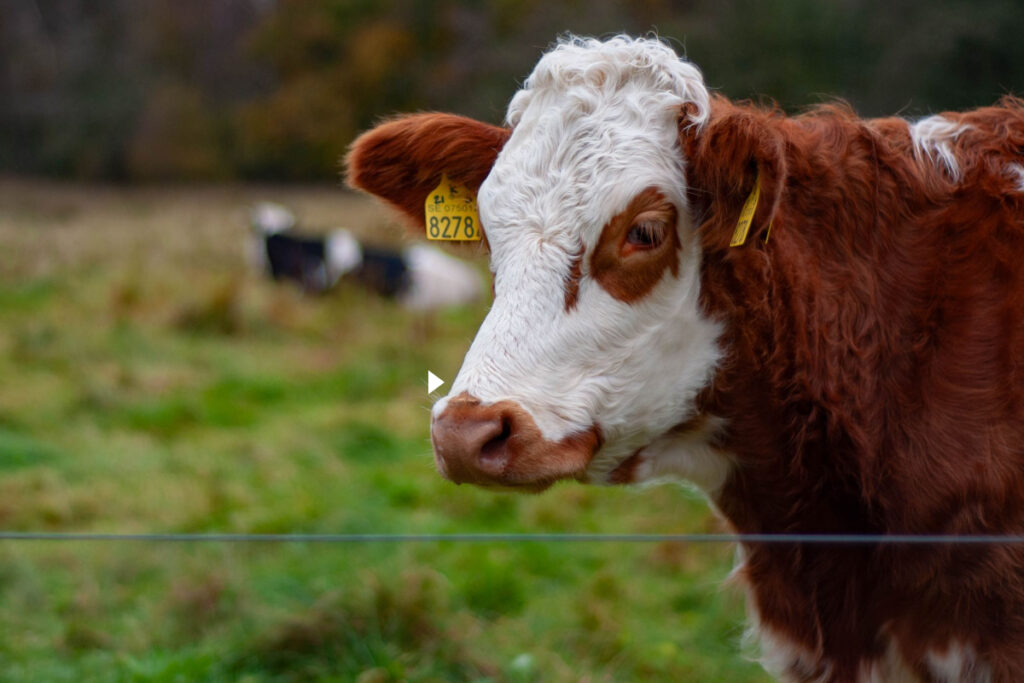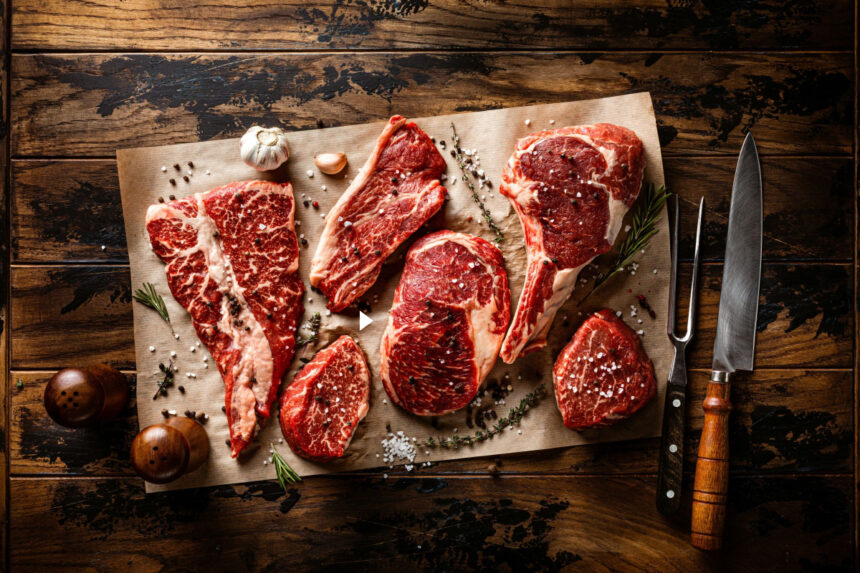In recent years, the demand for premium, responsibly sourced meat has led to a surge in meat subscription services. These services offer a convenient way to receive high-quality, pasture-raised, and regeneratively farmed meat products right at your doorstep. This article will delve into the benefits of regenerative agriculture for the environment, human health, and animal welfare. We will also review some of the best meat delivery subscriptions available, emphasizing their key features, pros, and cons.
Why Regenerative Farming Matters
Regenerative farming is a progressive agricultural approach that focuses on enhancing soil health, boosting biodiversity, and increasing the resilience of farming ecosystems. This farming method employs techniques such as crop rotation, cover cropping, and minimal chemical use to enrich soil quality and structure. The benefits of regenerative farming extend to reducing carbon emissions, minimizing water pollution, and improving climate resilience. By adopting regenerative farming practices, farmers can diversify their revenue, reduce reliance on synthetic inputs, and support a more sustainable and eco-friendly food system.
Here are some key benefits of regenerative farming:
Environmental Benefits

- Soil Health: Regenerative practices like cover cropping and crop rotation enhance soil health by increasing organic matter and improving soil structure. This results in better water retention, reduced erosion, and greater carbon sequestration.
- Biodiversity: By integrating diverse crop rotations and livestock into farming systems, regenerative agriculture fosters higher biodiversity, benefiting insects, birds, and other wildlife.
- Climate Resilience: Regenerative farming helps build climate resilience by capturing carbon in the soil, lowering greenhouse gas emissions, and mitigating the effects of extreme weather conditions.
Human Health Benefits

- Nutrient-Dense Food: Meat and produce from regeneratively farmed sources are often richer in nutrients due to healthier soil. This increased soil fertility contributes to better human nutrition and health.
- Reduced Chemical Exposure: Regenerative farming reduces the use of harmful synthetic pesticides, herbicides, and fertilizers, which can decrease chemical exposure for both farmers and consumers, leading to improved health outcomes.
- Community Health: When institutions such as hospitals and schools prioritize food grown using regenerative methods, it can enhance community health by promoting the consumption of nutrient-rich, sustainably produced food.
Animal Health Benefits

- Better Animal Welfare: Regenerative systems often involve pasture-raising animals, allowing them to engage in natural behaviors and consume a nutrient-rich diet. This leads to healthier animals and higher-quality, more nutritious meat.
- Reduced Stress: Animals raised in regenerative environments experience lower stress levels, which improves their overall well-being and results in better quality meat that is ethically sourced.
Top Meat Delivery Services
ButcherBox
- Description: ButcherBox is a well-regarded meat subscription service offering a range of high-quality, pasture-raised meats, including grass-fed beef, organic chicken, and heritage-breed pork. They focus on providing ethically sourced meat from trusted farmers.
- Pros:
- Extensive selection of premium meat cuts.
- Convenient home delivery service.
- Commitment to pasture-raised and grass-fed meats.
- Cons:
- Limited customization options.
- Higher cost compared to some competitors.
Wild Pastures
- Description: Wild Pastures delivers a monthly meat box featuring 100% pasture-raised meat from US family farms using regenerative methods. This approach results in healthier meat that benefits the environment.
- Pros:
- Natural grazing with no synthetic inputs.
- Supports local farmers and reduces carbon footprint.
- Customizable orders available.
- Cons:
- Some cuts may be available only as add-ons.
- Limited product variety compared to larger services.
Farm Fed Box
- Description: Farm Fed Box is dedicated to regenerative agriculture and ethical meat production. Their subscription box includes pasture-raised beef, forest-raised pork, and pasture-raised chicken, all in eco-friendly packaging.
- Pros:
- Focus on regenerative and responsible farming.
- GMO-free diet for animals.
- Transparent farming and animal welfare practices.
- Cons:
- Restricted delivery area.
- Less variety compared to larger services.
U.S. Wellness Meats
- Description: U.S. Wellness Meats is known for its 100% grass-fed and grass-finished beef, pasture-raised poultry, and other sustainably sourced meats. They partner with farms that practice regenerative agriculture and prioritize animal welfare.
- Pros:
- Wide range of grass-fed and pasture-raised options.
- Strong focus on regenerative farming and eco-friendly practices.
- High standards for animal welfare and meat quality.
- Cons:
- Higher price point compared to conventional meat products.
- Shipping costs can be a factor.
Porter Road
- Description: Porter Road offers a selection of pasture-raised meats, including beef, pork, lamb, and poultry. They collaborate with small, local farms that adhere to sustainable and responsible farming practices.
- Pros:
- Sourced from small, local farms.
- Emphasis on ethical and sustainable farming methods.
- Transparent sourcing practices.
- Cons:
- Limited delivery area.
- Availability of some cuts may vary seasonally.
Crowd Cow
- Description: Crowd Cow allows customers to choose specific cuts of pasture-raised beef, pork, and poultry directly from the farm. They prioritize transparency and traceability in their sourcing practices.
- Pros:
- Option to select individual cuts and products.
- Focus on transparency and farm-to-table traceability.
- Direct connection to the source of the meat.
- Cons:
- Availability of some cuts depends on farm inventory.
- Requires more involvement in the selection process compared to pre-curated boxes.
Moink
- Description: Moink provides ethically sourced, humanely raised meat from small family farms. Their subscription boxes include pasture-raised beef, pork, chicken, and wild-caught seafood, with a commitment to sustainable farming practices.
- Pros:
- Ethical sourcing and humane treatment of animals.
- Diverse meat options, including seafood.
- Strong focus on sustainable farming.
- Cons:
- Limited customization options for individual orders.
- Availability of some cuts may vary seasonally.
Price Comparison
Monthly Subscription Boxes (8-11 lbs of mixed beef, chicken, and pork):
- Butcher Box – $146/monthly
- Wild Pastures – $153/monthly (15 lbs)
- Farm Fed Box – $149/monthly
- Porter Road – $120/monthly
- Moink – $159/monthly
Al-la-Carte Options(16-20 oz bone-in Ribeye steak / Whole Chicken):
- U.S. Wellness Meats – $27.92 ribeye, $47.88 (4.5lb) chicken
- Porter Road – $36 ribeye, $25 (3.5lb) chicken
- Crowd Cow – $36.99 ribeye, $20.96 (3.5lb) chicken
Final Thoughts
The growing popularity of meat subscription services offers an easy way to access premium, responsibly sourced meat products. By choosing services that emphasize regenerative agriculture, sustainable practices, and animal welfare, you can support a more ethical and eco-friendly food system while enjoying high-quality meats delivered right to your door.
Considering the benefits of regenerative farming and the unique features of each meat delivery service will help you make choices that reflect your values and preferences, ultimately supporting a better and more sustainable food system.

